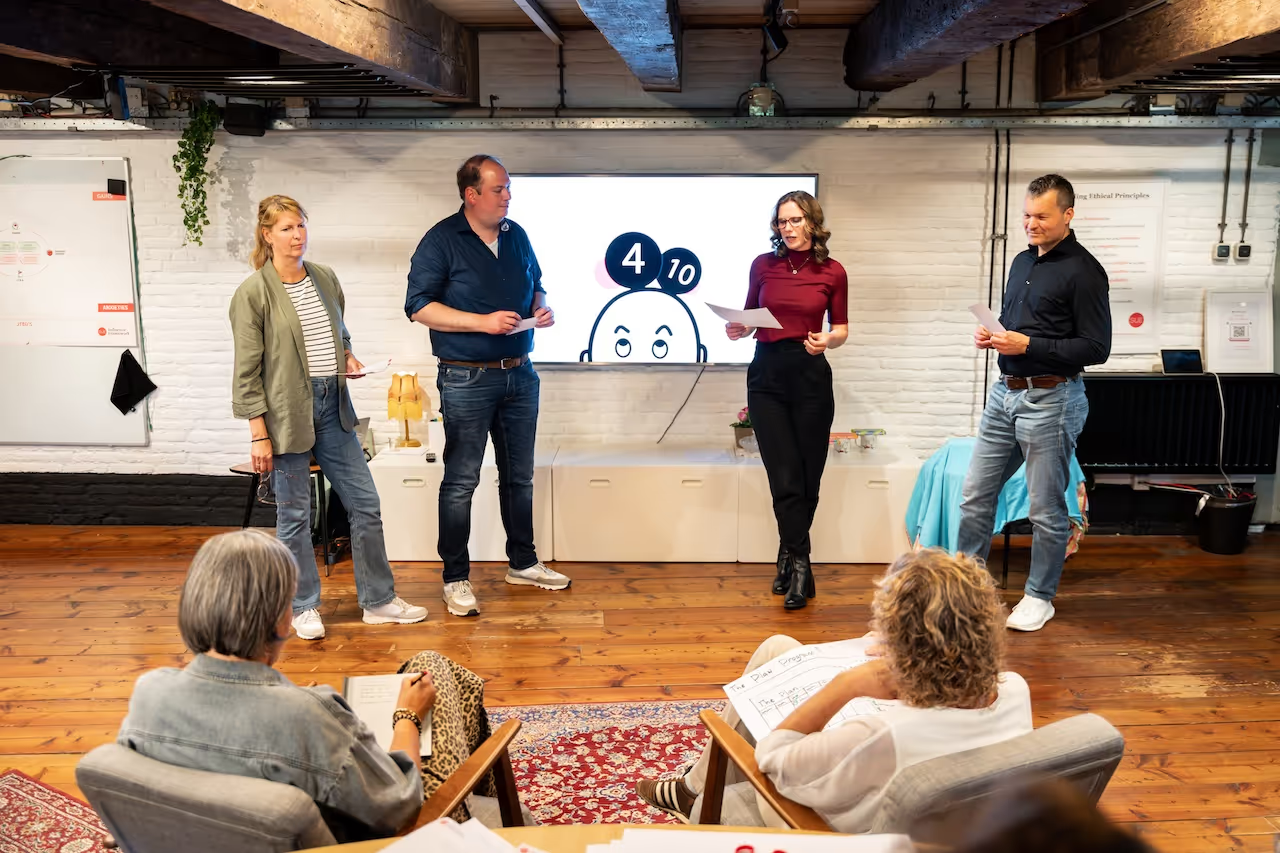Learn how to change minds and influence behaviour.
Become a smarter professional by understanding how people make decisions and why people do things and why they don’t.
Behavioural Design Fundamentals









Why add the Psychology of Influence to your skillset?
For any professional, the ability to influence people is a crucial skill. Whether you want people to buy, accept, take action, cooperate, quit something, start something right, participate, or agree, ultimately everything revolves around behaviour. By mastering the psychology of influence, you master the Art of Designing Behaviour. You start to understand how people make decisions and why they do (or don’t) do what they do. You will become much better at influencing yourself by getting a grip on people’s choice psychology.
Upcoming Open Edition Courses
2 days of live training (9.00 - 17.30 hrs) & 6 months of digital learning
2 days of live training (9.00 - 17.30 hrs) & 6 months of digital learning
Advanced Course Start January 2026 (4-month program)
Our Courses
We are an official training institute recognised by EQAC and offer both open-edition training courses and team training courses.

Behavioural Design Fundamentals
If you want to master how to influence minds and shape behaviour using behavioural science, this training is the best place to start.

Behavioural Design Advanced
Learn how to initiate, set up and run Behavioural Design Sprints from A to Z, become the behaviour expert within your team.
.webp)
Trainings for Teams and Organisations
Learn with your team how to use the psychology of influence to develop products, services, campaigns or policies that will be embraced.
Choose the learning experience that's right for you.
3 Ways of Attending

Live at our location
Prefer to learn in a vibrant setting with other professionals? Join one of our in-person editions to experience two high-energy days of practical training led by one of our expert trainers, and connect with a driven peer group. Choose a date that suits you best.
See all Dates
Self-Paced Online
Looking for more flexibility? Enjoy the Fundamentals Course from the comfort of your own home or on your commute. Taught by our founder Astrid Groenewegen. No travel, no adjustments needed, just high-impact, practical learning at your own pace.
.avif)
Team-Training
Want to train your entire team? Learn with your team how to use the psychology of influence to develop products, services, campaigns or policies that will be embraced. Tailor-made to meet the needs of your team or organisation.

What makes us unique is that SUE is both an Academy and Consultancy. This means that we bring our real-world experiences and cases into our training courses.
Why choose SUE?
SUE guides leadership teams worldwide in designing behaviour and engaging people in change. We have supported leadership and change teams at companies such as Roche (Switzerland), Newcold, the European Parliament, Aramco, Pfizer, and many more. We are happy to share more case studies and references upon contact.


Want to train your entire team?
If you wish to train your whole team or a group of more than 8 people, we also offer all our courses as team training. Tailormade to your organisation.
.webp)





Customer Testimonials






Some of the organisations we worked with.
We have trained people from both national and international clients. Ranging from non-profits, corporates, governments to scale-ups and health professionals.
If you want to know how they experienced Behavioural Design Academy, please check out their reviews.
















We are officially accredited by EQAC.

Learn how to apply the science of influence in practice.
Download the Behavioural Design Fundamentals Course brochure and discover how you can master the Behavioural Design Method© that will help you use insights and principles from behavioural science to help you create products, services, campaigns, or policies people will embrace, use, and love. Join over 5.000 forward-thinking professionals from over 45 countries who have already graduated from this training.